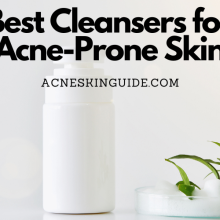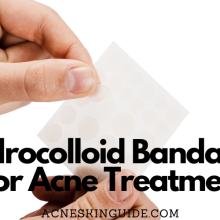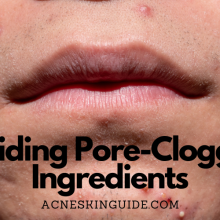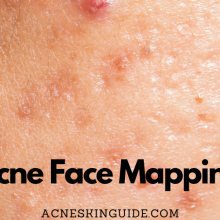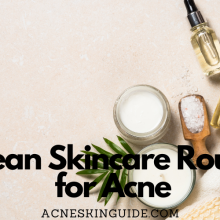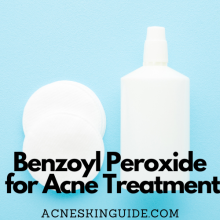Acne-Safe Makeup – Brands and Products Recommended by Dermatologists | AcneSkinGuide
Summary of Acne-Safe Makeup
Acne-safe or non-comedogenic makeup is formulated to avoid clogging pores and triggering breakouts. These oil-free, water-based products omit pore-clogging ingredients like mineral oils and waxes. Top acne-safe brands include Clinique, Neutrogena, Almay, e.l.f., bareMinerals, Physicians Formula, and jane iredale. Dermatologists recommend using non-comedogenic versions of all makeup products from foundations to mascaras. Lightweight liquid or mineral powder formulas provide coverage without feeling heavy.
Proper application techniques like cleansing skin first and using clean tools are crucial. Those with mild acne can use most non-comedogenic makeup, while mineral formulas are gentler for moderate acne. Those with severe cystic acne should avoid makeup on inflamed areas. Good makeup hygiene by cleaning tools and replacing products regularly is also important. While not a cure-all, acne-safe makeup allows achieving a clear complexion when used alongside proper skincare.

Acne-Prone Skin? Discover the Best Makeup Brands and Products Recommended by Dermatologists
Dealing with acne can be a frustrating experience, and choosing the wrong makeup can often exacerbate the problem further. Traditional makeup products are notorious for clogging pores and triggering breakouts, leading to a vicious cycle that’s difficult to break. However, with the rise of acne-aware beauty brands and formulas tailored to blemish-prone skin, finding cosmetics that won’t compromise your complexion has become much easier.
What Makes Makeup Acne-Safe?
The key to acne-safe makeup lies in its non-comedogenic formula, which means it won’t clog pores or contribute to breakouts. These products are typically oil-free, water-based, and free from heavy, pore-clogging ingredients like mineral oils, lanolins, and certain waxes. Additionally, many brands now offer vegan, cruelty-free, and hypoallergenic options to cater to those with sensitive skin.
Dermatologists and skincare experts recommend looking for products labeled as “non-comedogenic,” “non-acnegenic,” or “oil-free,” as these are specifically formulated to prevent clogged pores and breakouts. Clinical testing and dermatologist recommendations are also good indicators of a product’s acne-safe credentials.
Top Acne-Safe Makeup Brands
Several well-known brands have dedicated ranges of acne-safe makeup products that have received rave reviews from both dermatologists and beauty enthusiasts. Some of the top names in this space include Clinique, Neutrogena, Almay, e.l.f., bareMinerals, Physicians Formula, and jane iredale.
Clinique’s Acne Solutions line, for instance, offers a comprehensive range of non-comedogenic makeup, including foundations, concealers, and powder. Neutrogena’s SkinClearing line is another popular choice, featuring oil-free and salicylic acid-infused formulas that help control breakouts while providing coverage.
For those seeking mineral-based options, bareMinerals and jane iredale offer extensive collections of loose and pressed powder foundations, blushes, and bronzers that are free from oils, fragrances, and other potential irritants.
Best Acne-Safe Makeup Products
Dermatologists recommend using acne-safe versions of all your makeup products, from foundations and concealers to powders, bronzers, mascaras, eyeliners, and lip products. Many brands now offer specialized primers and setting sprays formulated for acne-prone skin, ensuring your makeup stays in place without clogging pores.
When it comes to foundations, opt for lightweight, oil-free liquid or mineral powder formulas that provide buildable coverage without feeling heavy or greasy on the skin. Concealers with color-correcting properties can help neutralize the appearance of blemishes, while mattifying powders help control shine and absorb excess oil throughout the day.
For eye makeup, look for water-based or gel-based formulas that are less likely to cause irritation or transfer onto the skin around the eyes. Similarly, lip products with a matte or stain finish tend to be safer for acne-prone skin than creamy, emollient formulas.
Makeup Application Tips for Acne-Prone Skin
Proper application and removal techniques are just as important as choosing the right products. Always start with a freshly cleansed face and use oil-blotting sheets throughout the day to remove excess sebum. Apply makeup with clean brushes and tools, and avoid heavy, pore-clogging formulas that can sit on the skin and cause breakouts.
If you’re using acne treatments, it’s best to layer them under or over your makeup, depending on the product’s instructions. Color-correcting concealers can be used to camouflage active blemishes without exacerbating them.
Choosing Makeup Based on Acne Severity
The severity of your acne should also guide your makeup choices. Those with mild acne can typically use most non-comedogenic makeup products without issue. However, those with moderate acne may want to opt for oil-free mineral makeup, which tends to be gentler on the skin and less likely to cause irritation.
For those with severe cystic acne, dermatologists often recommend avoiding makeup altogether on inflamed areas and using only minimal, non-irritating products on the rest of the face. In such cases, it’s best to focus on treating the acne first before attempting to cover it up with makeup.
Makeup Hygiene for Acne-Prone Skin
Proper hygiene is crucial when using makeup, especially for those with acne-prone skin. Clean your makeup brushes and tools regularly with a gentle, antibacterial cleaner to prevent the buildup of bacteria and oils that can lead to breakouts. Replace makeup products every 3-6 months, as expired cosmetics can harbor harmful bacteria and become breeding grounds for acne-causing microbes.
Additionally, never share makeup with others, as this can transfer bacteria, oils, and other contaminants that can trigger breakouts.
Downsides of Acne-Safe Makeup
While acne-safe makeup is a godsend for those with blemish-prone skin, it’s important to note that these products aren’t a cure-all solution. Some individuals may still experience reactions or breakouts due to individual sensitivities or improper usage.
Additionally, acne-safe makeup can sometimes feel drying or lack the same level of coverage and longevity as traditional formulas. Finding the right balance between acne-safe and high-performance makeup may require some trial and error.
Conclusion
With the right acne-safe makeup products and proper application techniques, it’s possible to achieve a flawless, confident look without compromising your skin’s health. By following dermatologist recommendations, choosing non-comedogenic formulas, and practicing good hygiene habits, you can minimize the risk of breakouts and maintain a clear, blemish-free complexion.
Remember, while makeup can temporarily conceal blemishes, addressing the underlying causes of acne through proper skincare and treatments should be the ultimate goal. Consult with a dermatologist for personalized advice and recommendations tailored to your specific skin concerns.
FAQs and Answers
Can acne-safe makeup be used for other skin conditions like rosacea or eczema?
Yes, acne-safe or non-comedogenic makeup can often be suitable for those with other skin conditions like rosacea and eczema. The key factors that make makeup “acne-safe” – being oil-free, hypoallergenic, and free of pore-clogging ingredients – can also benefit those with sensitive skin conditions.
For rosacea, non-comedogenic makeup helps prevent flare-ups by avoiding oils, fragrances, and other potential irritants that can exacerbate redness and inflammation. Many dermatologists recommend mineral-based makeup for rosacea as it doesn’t clog pores.
Similarly, for eczema, hypoallergenic and fragrance-free formulas are less likely to cause further irritation or dryness. The gentle, non-comedogenic formulas are usually well-tolerated by eczema-prone skin.
However, it’s still important to do a patch test first, as individual sensitivities can vary. And in cases of severe flare-ups or active eczema lesions, it may be best to avoid makeup altogether until the condition improves. But in general, acne-safe makeup is a good option to explore for those with rosacea, eczema, or sensitive skin conditions.
Are there any affordable drugstore options for acne-safe makeup, or are they only available from high-end brands?
Yes, there are definitely affordable drugstore options for acne-safe or non-comedogenic makeup. While many high-end brands offer excellent acne-safe makeup lines, you don’t have to break the bank to find good quality products.
Some great affordable drugstore brands that have dedicated acne-safe/non-comedogenic makeup ranges include:
- Neutrogena – Their SkinClearing line has oil-free foundations, concealers, powders and more formulated for acne-prone skin.
- e.l.f. Cosmetics – This extremely affordable brand has an “Acne Fighting” collection with salicylic acid infused makeup products.
- Almay – Known for their hypoallergenic formulas, Almay has oil-free options like their Clear Complexion makeup.
- Physician’s Formula – Offers mineral-based, talc-free powders and foundations suited for acne-prone skin.
- NYX Professional Makeup – Their “Bare With Me” collection features non-comedogenic complexion products.
- CoverGirl – The “Clean” line has oil-free, sensitive skin friendly foundations and more.
Many drugstore brands will clearly label their non-comedogenic or “won’t clog pores” products. Reading ingredient lists for terms like non-acnegenic, oil-free, and fragrance-free can also help identify acne-safe options. With a little research, you can absolutely find quality acne-safe makeup at the drugstore without overspending.
How do acne-safe makeup products differ in terms of coverage and finish compared to traditional formulas?
Acne-safe or non-comedogenic makeup products tend to differ from traditional formulas in a few key ways when it comes to coverage and finish:
Coverage:
- Many acne-safe foundations and concealers offer light to medium buildable coverage rather than full, heavy coverage. This is because they use fewer pore-clogging ingredients.
- Mineral powder foundations in particular provide sheer to medium coverage as they rely on finely milled minerals instead of oils and waxes.
- However, some newer non-comedogenic formulas have been able to achieve higher pigment levels for more full coverage while still being non-pore-clogging.
Finish:
- Acne-safe makeup often has a natural matte or satin finish rather than a dewy or luminous finish, as the lack of oils gives a less shiny appearance.
- Many are specifically marketed as “mattifying” to control shine and oil on acne-prone skin.
- The mineral powder products in particular tend to have a very natural matte finish.
- However, some non-comedogenic foundations now offer a natural or radiant finish through the use of specific blurring pigments rather than oils.
Texture:
- Non-comedogenic formulas tend to have lighter, more breathable textures compared to rich, creamy traditional makeup textures.
- Liquid foundations are usually thin, almost watery, or have a lightweight serum or fluid texture.
- Powder formulas are finely milled for a smooth, non-cakey application.
So in general, you can expect slightly more natural, matte coverage from acne-safe makeup. But formulas are continuing to improve to offer higher coverage and more radiant finishes while still being non-acnegenic.
Are there specific ingredients or formulations that are better for different types of acne (hormonal, cystic, etc.)?
Yes, there are certain ingredients and formulations in acne-safe makeup that may work better for different types of acne:
Hormonal Acne:
- Look for non-comedogenic products containing salicylic acid or alpha hydroxy acids like glycolic or lactic acid. These can help exfoliate and unclog pores.
- Niacinamide is another good ingredient that can help regulate sebum production.
- Mineral makeup with zinc oxide and titanium dioxide can absorb excess oil.
Cystic/Inflammatory Acne:
- Products with sulfur can help dry out and reduce inflammation in cystic acne lesions.
- Gentle mineral makeups are preferable over liquid formulas that may further irritate inflamed bumps.
- Color-correcting concealers in green tones can help neutralize redness from inflamed cysts.
Mild Acne/Whiteheads/Blackheads:
- Salicylic acid or benzoyl peroxide products can help break down oils and debris in pores.
- Look for “acne-fighting” or “blemish-clearing” claims on the packaging.
- Mattifying silicone-based primers may absorb excess oil that contributes to clogged pores.
While acne-safe products avoid pore-clogging ingredients in general, incorporating specific acne-fighting ingredients can provide extra benefits based on the type of breakouts. As always, patch testing is recommended before trying new products, especially on active inflamed acne.
It’s also important to use the right amount – heavy application of any makeup can potentially clog pores. Taking breaks from makeup and allowing skin to breathe can be helpful too. But overall, the right formulas can be a useful addition to an acne treatment routine.
Can acne-safe makeup be worn during or after certain acne treatments like Accutane or chemical peels?
When it comes to wearing acne-safe makeup during or after certain intensive acne treatments like Accutane (isotretinoin) or chemical peels, there are some important considerations:
Accutane Treatment:
- During an Accutane course, skin becomes extremely dry and sensitive. Most dermatologists recommend avoiding makeup entirely or using only the gentlest, non-comedogenic mineral powder formulas.
- After completing Accutane, it’s still advisable to stick to very simple, fragrance-free makeup for several months as the skin remains delicate.
- Oil-free, hypoallergenic liquid or cream makeups may be tolerated, but watch for any dryness or irritation.
Chemical Peels:
- Right after a chemical peel treatment, makeup should be avoided completely for at least a week to allow the skin to heal properly.
- Once peeling has stopped, mineral powder-based makeup is usually the first type recommended by dermatologists.
- Non-comedogenic liquid or cream makeup may be introduced gradually, but heavy or occlusive formulas should still be avoided for a while after a deeper peel.
- Always follow your dermatologist’s specific post-peel instructions regarding makeup.
In general, during or immediately after these intensive treatments, your skin’s protective barrier is compromised. This makes it more vulnerable to irritation and infections from makeup ingredients or applicators.
Loose powder mineral makeup tends to be the safest option as it doesn’t contain oils, binders or preservatives that could further irritate treated skin. Once skin has fully recovered, you can explore other non-comedogenic makeup options as tolerated.
The key is to listen to your skin and return to your dermatologist if you experience any adverse reactions after starting to wear makeup again post-treatment. Patience and a gradual approach are important.

